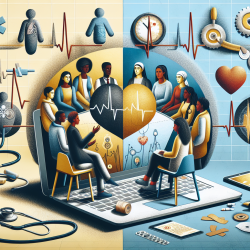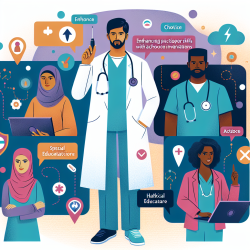Understanding Racism as a Public Health Crisis
Racism is not just a social issue; it's a public health crisis that demands immediate attention. The recent editorial titled Exploring the intersections of structural inequities and health disparities: the challenge and opportunity of recognizing racism as a public health crisis delves into the pervasive effects of racism on population health. This blog aims to help practitioners improve their skills by implementing the outcomes of this research or encouraging further exploration into the topic.
The Impact of Racism on Health
The COVID-19 pandemic has highlighted longstanding health disparities, particularly among underserved populations. Ethnically and racially minoritized communities have faced a greater burden due to structural racism and other intersecting forms of discrimination. Addressing these issues is crucial for promoting health and wellbeing equity.
Moving Beyond Individual Racism
Most research has focused on individual and interpersonal expressions of racism, but it's time to shift our focus to macro-level determinants. These include institutional, community, societal, law, and policy levels. For instance, historical redlining has disproportionately impacted communities of color, leading to present-day health inequities.
Adopting a Socio-Ecological Approach
To effectively address racism as a public health crisis, we need a socio-ecological, multilevel, decolonial, and intersectional approach. This means considering individual experiences of discrimination within the broader context of community, societal, and global forces.
Improving Data Representation
One of the limitations in public health research is the underrepresentation of ethnically and racially minoritized populations. More racially and ethnically representative datasets are needed to ensure health equity policies and interventions are based on reliable research.
Community-Centered Research
Community-centered research methods can provide valuable insights into the experiences of those impacted by racism. This approach can help develop reliable measures and appropriate interventions to tackle racism.
Rethinking Public Health Significance
The field of public health often overlooks rare phenomena and diseases, even though they can provide critical insights into how racism produces inequities. Identifying "strategic research events" can reveal fundamental processes at work, helping us understand and address these challenges.
Conclusion
As practitioners, it's essential to recognize racism as a public health crisis and take actionable steps to address it. By adopting a comprehensive approach, improving data representation, and focusing on community-centered research, we can work towards achieving health equity for all.
To read the original research paper, please follow this link: Exploring the intersections of structural inequities and health disparities: the challenge and opportunity of recognizing racism as a public health crisis.










